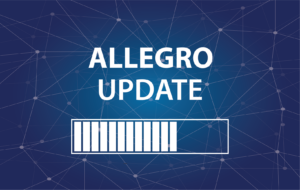
Preparing for the Operational Impacts of AI
On November 30, 2022, ChatGPT, an artificial intelligence chatbot, was launched by OpenAI. By January of 2023, Chat GPT reached an estimated monthly active user count of 100 million, making it the fastest-growing consumer application in history.[1] ChatGPT has found its footing in numerous industries and with its arrival comes concerns manifested by its far-reaching potential. Fintechs, banks, and credit union are among the players seeking to find the proper balance of incorporating machine learning and artificial intelligence into their service cycles by mitigating cybersecurity threats, better identifying fraud, and supplementing resources to manage the burgeoning number of customer service tickets.
Artificial Intelligence, Defined
According to computer scientist and cognitive scientist John McCarthy, artificial intelligence (AI) “is the science and engineering of making intelligent machines, especially intelligent computer programs and it is a field that combines computer sciences and robust datasets to enable problem-solving.”[2]He defines intelligence as “the ability to achieve goals in the world.”[3] As humans, we learn from stimuli and shared experiences as well as the experiences of others. AI is similar in its acquisition of knowledge in that it “receives percepts from the environment and performs actions based on those percepts.”[4]
An AI tool can learn from previous writings accessible from the vast database of human knowledge available on the internet, but it can only analyze and apply that knowledge based on the constructs of its programming.
As a Solution to Cybersecurity Threats and Fraud
Recently Alloy, a company that uses AI in its Identity Decisioning Platform, conducted a survey of over 250 decision makers in fraud-related roles at financial institutions and 91% of respondents indicated that fraud had increased at their organization.[5] The survey found that 27% of those respondents reported losing over $1 million, with fintechs reporting even higher losses of up to $10 million.[6] The surveyed respondents also indicated that the biggest reason why their organization was inadequately prepared for fraud was due to a lack of automation that can be handled by AI technology.
Because of AI’s increased ability to learn and grow from resources available online, ChatGPT and intelligences similar to it can be programmed to recognize potential cyberattacks and threats that may be missed by employees. A 61%[7] increase in phishing attacks was reported in the six months ending in October 2022, and the threat is expected to rise in the future. AI and machine learning can play an important role in combatting these dangers. Check fraud, for example, can be better identified by using such technology to analyze images and transaction data to detect anomalies and suspicious submissions. Utilizing AI and machine learning can help reduce the risk of cyberattacks and mitigate fears experienced by customers as fraud becomes more prevalent. AI can supplement the effort of engineers and cybersecurity specialists to create a more impenetrable shell of protection around a company’s assets and reputation.
Customer Service’s Companion
In addition to providing a solution to help reduce fraud and cybersecurity threats, AI is most commonly used in the form of chatbots or personal online assistants. ChatGPT and other services offer programmable “bots” that can be taught how to sift through company resources to formulate an answer to commonly asked questions. This first line of support in providing resources and aid to consumers can alleviate customer service centers who are bombarded with questions on a daily basis. If a customer’s question cannot be answered by the chatbot, then it can be referred to a customer service specialist.
AI can help reduce the strain and the wait time that customers may experience when seeking support. This can also ensure that customer service representatives can be deployed on higher value activities that require their expertise.
Inherent Risks
As financial institutions seek new ways to combat fraud, cyber threats, and growing customer demand, those with malicious intentions will seek to use these ground-breaking resources in a way to further ill intent. With any technological advancement, there are many unanswered questions and unknowns. The full potential of AI has yet to be realized and will continue to develop and mature the more that it reads, experiences, and processes. Just as ChatGPT and other AI tools can be leveraged to address legitimate business needs, they can also be exploited by individuals who seek to use their capabilities to target members in your organization or your customers or members.[8] If the AI has access to customer or company information, individuals can compromise the AI in an effort to reprogram it or to hold this information for ransom, should they gain access.
Artificial intelligence and machine learning also have the potential to remove personalization from the member and customer experience. AI may reduce human connection and, in some cases, may reduce customer or member confidence. Your customers or members may view AI and chatbots as “gatekeepers that prevent them from connecting with a real person”[9]and may ultimately seek a financial institution with a more personalized approach. AI also has the potential to generate biases depending on the material to which it is exposed. Hypothetically, these biases could affect the loan decisioning process and could potentially turn aways clients who should qualify for an approval based on established underwriting criteria. However, such concerns underscore the importance of working with an AI provider that has trained its technology to navigate these considerations appropriately.
AI and its Future
Artificial intelligence is not a fad and appears to be here to stay. As the tools using AI become more sophisticated, so will their application potential. AI is a powerful and capable tool that credit unions, banks, and financial institutions can leverage to improve the customer experience and reduce threats and fraud.
[1] https://www.reuters.com/technology/chatgpt-sets-record-fastest-growing-user-base-analyst-note-2023-02-01/
[2] https://www.ibm.com/topics/artificial-intelligence
[3] https://www-formal.stanford.edu/jmc/whatisai.pdf
[4] https://aima.cs.berkeley.edu/newchap00.pdf
[5] https://www.alloy.com/state-of-fraud-benchmark-report
[6] https://www.cutimes.com/2023/05/24/for-credit-unions-automation-creates-pathways-to-combat-fraud-in-2023/?kw=For%20Credit%20Unions,%20Automation%20Creates%20Pathways%20to%20Combat%20Fraud%20in%202023
[7] https://www.cnbc.com/2023/01/07/phishing-attacks-are-increasing-and-getting-more-sophisticated.html
[8] https://www.cutimes.com/2023/06/26/chatgpt-cybersecurity-is-it-a-double-edged-sword/
[9] https://www.cuinsight.com/how-can-credit-unions-leverage-ai-without-eroding-member-trust/






 Upcoming Holidays
Upcoming Holidays